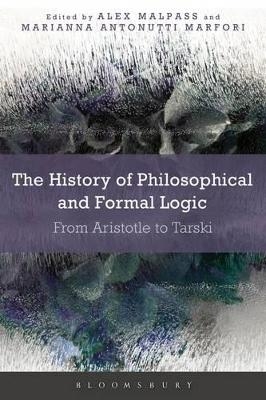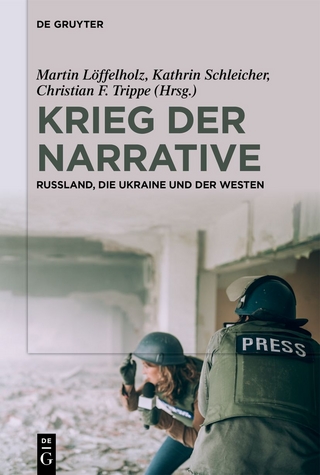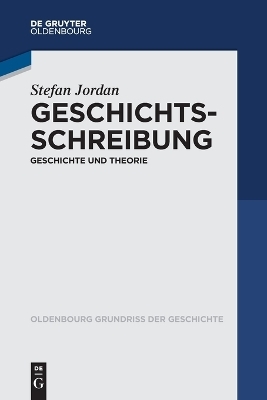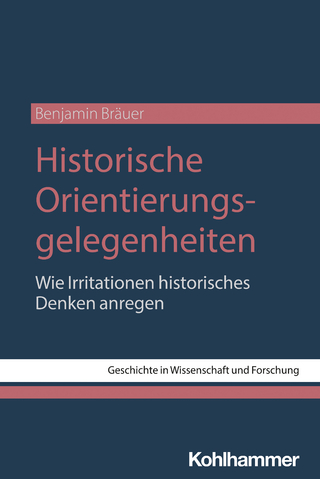
The History of Philosophical and Formal Logic
From Aristotle to Tarski
Seiten
2017
Bloomsbury Academic (Verlag)
978-1-4725-1350-2 (ISBN)
Bloomsbury Academic (Verlag)
978-1-4725-1350-2 (ISBN)
The History of Philosophical and Formal Logic introduces ideas and thinkers central to the development of philosophical and formal logic. From its Aristotelian origins to the present-day arguments, logic is broken down into four main time periods:
Antiquity and the Middle Ages (Aristotle and The Stoics)
The early modern period (Bolzano, Boole)
High modern period (Frege, Peano & Russell and Hilbert)
Early 20th century (Godel and Tarski)
Each new time frame begins with an introductory overview highlighting themes and points of importance. Chapters discuss the significance and reception of influential works and look at historical arguments in the context of contemporary debates. To support independent study, comprehensive lists of primary and secondary reading are included at the end of chapters, along with exercises and discussion questions.
By clearly presenting and explaining the changes to logic across the history of philosophy, The History of Philosophical and Formal Logic constructs an easy-to-follow narrative. This is an ideal starting point for students looking to understand the historical development of logic.
Antiquity and the Middle Ages (Aristotle and The Stoics)
The early modern period (Bolzano, Boole)
High modern period (Frege, Peano & Russell and Hilbert)
Early 20th century (Godel and Tarski)
Each new time frame begins with an introductory overview highlighting themes and points of importance. Chapters discuss the significance and reception of influential works and look at historical arguments in the context of contemporary debates. To support independent study, comprehensive lists of primary and secondary reading are included at the end of chapters, along with exercises and discussion questions.
By clearly presenting and explaining the changes to logic across the history of philosophy, The History of Philosophical and Formal Logic constructs an easy-to-follow narrative. This is an ideal starting point for students looking to understand the historical development of logic.
Alex Malpass is a Teaching Fellow in the Department of Philosophy, University of Bristol, UK. Marianna Antonutti Marfori is Research Associate in Philosophy at the University of Bristol, UK.
Introduction
Part I: The Origins of Formal Logic
1. Aristotle's Logic, Adriane Rini
2. Stoic Logic, Katerina Ierodiakonou
3. Medieval Logic, Sara L. Uckleman
Part II: The Early Modern Period
4. Leibniz, Jaap Maat
5. Bolzano, Jönne Kriener
6. Boole, Giulia Terzian
Part III: Mathematical Logic
7. C. S. Peirce, Peter Ohrstrom
8. Frege, Walter B. Pedriali
9. Peano and Russell, Alexander Bird
10. Hilbert, Curtis Franks
Part IV: Twentieth Century Logic
10. Gödel, P. D. Welch
12. Tarski, Benedict Eastaugh
Index
| Erscheint lt. Verlag | 29.6.2017 |
|---|---|
| Verlagsort | London |
| Sprache | englisch |
| Maße | 156 x 234 mm |
| Gewicht | 644 g |
| Themenwelt | Geisteswissenschaften ► Geschichte ► Geschichtstheorie / Historik |
| Geisteswissenschaften ► Philosophie ► Geschichte der Philosophie | |
| Geisteswissenschaften ► Philosophie ► Logik | |
| ISBN-10 | 1-4725-1350-9 / 1472513509 |
| ISBN-13 | 978-1-4725-1350-2 / 9781472513502 |
| Zustand | Neuware |
| Haben Sie eine Frage zum Produkt? |
Mehr entdecken
aus dem Bereich
aus dem Bereich
Russland, die Ukraine und der Westen
Buch | Softcover (2024)
De Gruyter (Verlag)
39,95 €
Geschichte und Theorie
Buch | Softcover (2024)
De Gruyter Oldenbourg (Verlag)
24,95 €
wie Irritationen historisches Denken anregen
Buch | Softcover (2024)
Kohlhammer (Verlag)
69,00 €


